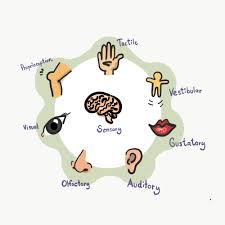By Praveen Bathini et al.
Source OXFORD academic
Abstract
Sensory functions of organs of the head and neck allow humans to interact with the environment and establish social bonds. With aging, smell, taste, vision, and hearing decline. Evidence suggests that accelerated impairment in sensory abilities can reflect a shift from healthy to pathological aging, including the development of Alzheimer’s disease (AD) and other neurological disorders. While the drivers of early sensory alteration in AD are not elucidated, insults such as trauma and infections can affect sensory function. Herein, we review the involvement of the major head and neck sensory systems in AD, with emphasis on microbes exploiting sensory pathways to enter the brain (the “gateway” hypothesis) and the potential feedback loop by which sensory function may be impacted by central nervous system infection.
Read more click here

